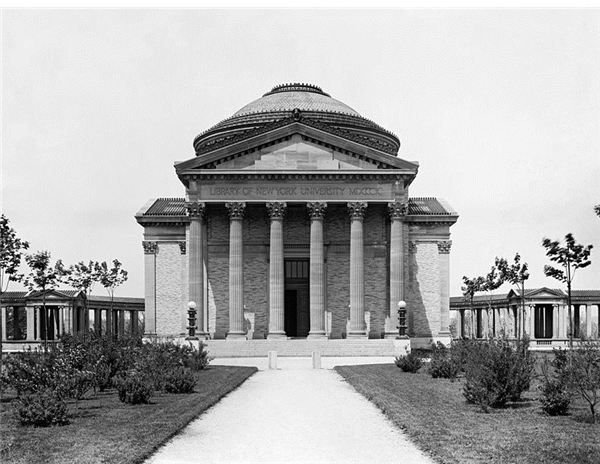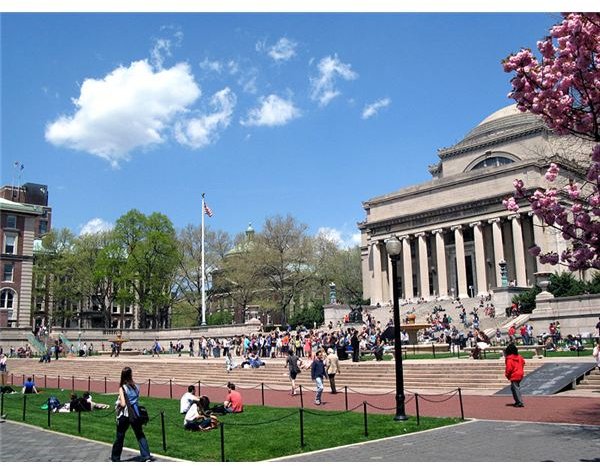Colleges or Universities New York City: An Introduction to the Public Schools
Introduction

New York City is blessed with a wide variety of educational institutions including some of America’s most well known schools such as Columbia University. In addition, the city has a number of specialized colleges and universities for students seeking to obtain professional qualifications, associate degrees and graduate degrees. Explore this guide to learn about the city’s colleges or universities. New York City potential applicants should be aware that each college has different admissions requirements and may have additional fees beyond what is stated in this guide.
Public Colleges in New York City
The majority of public colleges and universities serving students in New York City are part of City University of New York (CUNY) system or the State University of New York (SUNY) system. With more than twenty public institutions of higher education in the city, this section will highlight some of the city’s highly regarded and large institutions.
-
Borough of Manhattan Community College: Part of CUNY, this college offers two year programs to students. Associate degree programs offered include human services, liberal arts, theatre, science, business management, nursing, office operations, small business and biotechnology. Full time students ((i.e. those taking 12-18 credits worth of courses) who are residents of New York City pay about $1600 per semester; non-city residents have higher tuition rates. CUNY has five other community colleges located throughout New York City.
-
Brooklyn College: Brooklyn College has been highly rated by the Princeton Review as one of America’s best value colleges. Part of the CUNY system, Brooklyn College has about 17,000 students (14,000 undergraduates). Undergraduate programs are offered in classics, art, biology, philosophy, history, mathematics, education, women’s studies and many other fields of study. At the time of this stating, New York State residents pay $2415 in tuition per semester, while non-state residents pay $435 per college credit.
-
City University of New York (CUNY): This public college is composed of more than twenty institutions. Some of CUNY’s specialized programs include: criminal justice (John Jay College of Criminal Justice), journalism (CUNY Graduate School of Journalism), technology (New York City College of Technology) and law (CUNY School of Law). With more than 200,000 students in degree programs, CUNY is one of the largest public university systems in the United States. New York state residents pay about $4,800 per year at one of CUNY’s four year colleges; non-state residents pay much more.
-
Empire State College: This public college, part of the State University of New York, offers programs for traditional students and adult learners. Though the college is headquartered outside of New York City, The Harry Van Arsdale Jr. Center for Labor Studies is located in New York City. In addition to traditional classes, students can also complete undergraduate programs completely online. With approximately 16,000 students distributed across New York State (and elsewhere), Empire State College is much smaller than CUNY. New York State residents studying for an Associate or Bachelor’s degree pay about $207 per credit course (non state residents pay about $550 per credit course).
Private Colleges in New York, New York

New York City has more than one hundred private colleges and universities including religious colleges and for-profit colleges. If you want to earn a degree in theology, improve your technology skills or earn a PhD, there is a New York City private college for you.
-
Barnard College: Founded in 1889, Bernard College is one of America’s best regarded women’s colleges. The college is particularly well known for its humanities programs. Bernard’s students also benefit from having access to the academic resources of nearby Columbia University. In the 2011-2012 academic year, the tuition and fees charged at Bernard College came to approximately $42,000 per year.
-
Columbia University: Columbia is a large private university with many different bachelors, Master’s and PhD programs. In addition, Columbia offers well respected professional degrees in law, business, dental medicine, journalism, medicine, nursing and social work. Columbia has approximately 8,000 undergraduate students and nearly 20,000 graduate and professional degree students. Tuition and fees at Columbia’s main undergraduate unit, Columbia College, are currently $39,000 per year.
-
The Cooper Union: Established in 1859, Cooper Union offers degree programs in art, engineering, the humanities and the social science. Students can also study architecture at the Cooper Union. The college is also known for its numerous full tuition scholarships. Continuing education courses are offered in French, Italian, Spanish, book arts, drawing, typeface design and printmaking.
-
Fordham University: This private Jesuit university provides instruction according to the Catholic tradition. The university has a special admissions program for military veterans interested in studying for a graduate or undergraduate degree. Specialized academic programs offered at Fordham include religious education, Irish studies and Latin-American studies. The tuition and fees charged at Fordham is $37,000 per year.
-
New York University: Established in 1831, this large private university offers many different degree and non-degree programs such as medicine, law and business. Columbia University can count 12 MacArthur Fellowship winners and four Nobel Prize winners in its history. Students can access the university’s large library collection which has more than 4.5 million items. In the 2011-2012, mandatory fees and tuition for one year of full time undergraduate study cost about $41,600; specialized programs and professional programs have higher fees.
-
Brooklyn Law School: Exclusively focused on legal education, the Brooklyn Law School has a LLM degree and a JD program. Students can also earn certificates in fields such as real estate, business law, criminal law and intellectual property law. The tuition and fees required to attend the Brooklyn Law School as a full time student are approximately $46,000 per year; the School estimates the total cost of attendance can range between $55,000 and $69,000 per year.
-
The New School: Situated in the Greenwich Village area of Manhattan, the New School is particularly well known for its social science and humanities programs. Interdisciplinary undergraduate programs are available in global studies, urban studies, urban design, liberal arts and environmental studies. The New School also has institutes and centers dedicated to economic policy, Latin American Studies, New York City affairs and media. Tuition and fees vary considerably depending on the area of study: undergraduate students in design have tuition rates of about $19,000 per year while the liberal arts programs have slightly lower fees of about $18,500 per year.
-
Yeshiva University: Jewish programs of study and secular programs are offered by this private university. One of the best well known units of Yeshiva is the Albert Einstein College of Medicine. Yeshiva also has a women’s college: Stern College for female students who prefer a single sex educational experience. Yeshiva has a law school, graduate programs and advanced programs in Talmudic studies as well. Tuition and fees for full time undergraduate students at Yeshiva is about $32,000 per year.
To learn more about colleges or universities new york city that are public, refer to page one of this article.
Resources
Image Credit: Wikimedia Commons/Library of Congress
Image Credit: Wikimedia Commons/Momos